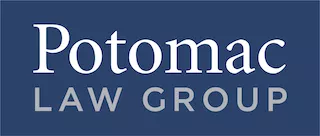By: Ellen London, Derek Adams, and Himani Nadgauda *
As of May 2021, nearly $800 billion in funding had been provided under the Paycheck Protection Program (PPP), with $520 billion yet to be forgiven. Although not publicly announced, we understand that the U.S. Small Business Administration (SBA) has hired Deloitte to assist it with the massive undertaking required to review and decide millions of loan forgiveness requests. This article discusses what action you may take if your loan forgiveness request is denied by the SBA.
The SBA has laid out a formal and legal process for appealing the SBA's decisions to deny PPP loan forgiveness. A high-level overview is provided below. However, the process is intricate and detail oriented, and there will be continued developments as the appeals come in.
As an initial matter, the basic background to the loan forgiveness process is as follows: Lenders receive the borrower's loan forgiveness application, decide the amount of loan forgiveness, and issue a decision regarding loan forgiveness to the SBA. The SBA remits the loan forgiveness amount requested by the lender and/or reviews the loan. The SBA Office of Hearing and Appeals (OHA) accepts timely filed appeals by borrowers (also referred to as appellants throughout this article).
What exactly can a borrower appeal?
Only certain kinds of SBA loan review decisions under the PPP may be appealed. The decisions that are appealable must be final, which means that they are official written decisions issued by the SBA, after it has completed a review of a PPP loan, in which the SBA found that a borrower was either ineligible for the PPP loan in the amount received or at all, or that the PPP loan proceeds went towards unauthorized uses.
What is the timeline for filing an appeal?
The deadline to file an appeal is the earlier of two scenarios: 1) within 30 calendar days after the appellant's receipt of the final SBA loan review decision, or 2) within 30 calendar days of the notification by the lender of the final SBA loan review decision. This is a short timeframe to appeal; thus, it is important to take immediate action if your loan forgiveness request is denied.
What goes into filing an appeal?
Organizations that plan to file an appeal must put together an appeal petition. (Note that some businesses may pursue alternative dispute resolution instead.) The appeal petition must include the basis for the OHA's jurisdiction; a copy of the loan review decision that is being appealed; a statement about why the decision was erroneous; and the relief being sought. The petition must also include signed copies of payroll tax filings filed with the IRS and the state; various federal tax returns and schedules, such as Form 1040 with Schedules C or F; and individual employee wage reporting and unemployment insurance tax filings reported to the relevant state, for the relevant periods of time, if they are not provided with the PPP Loan Forgiveness Application, or an explanation of why they are not relevant or available. The appeal petition is an important document as it details your legal and factual bases for why the SBA's decision is improper or incorrect. Seeking experienced legal counsel to help draft this petition is important.
What standard will be used in the appeal?
In the appeals process, the appellant has the burden of proof to show by a preponderance of the evidence that there is a clear error of fact or law.
The appeals process:
Appeal Petition
Once the appeal petition is filed, OHA will assign the matter to either an Administrative Law Judge or an Administrative Judge. The Judge will then issue a notice and order setting a deadline for production of the administrative record and specifying a date for the close of record. Typically, the administrative record will be due 20 calendar days after issuance of the notice and order (unless additional time is requested and granted), and the record will close 45 calendar days from the date of OHA's receipt of the appeal (unless additional time is requested and granted). The administrative record must include relevant documents that the SBA considered in making its final decision or that were before the SBA at the time of the final decision. The administrative record must be certified and authenticated as complete and correct.
Post-Petition Filings
The SBA may file a response to the appeal petition before the close of record with the OHA. Unless the Judge directs otherwise, appellants are not permitted to file a reply to the SBA's response.
Objections, Discovery, and Oral Hearing
Appellants can file objections regarding the absence of any document from the administrative record that the appellant believes should have been included. Appellants can also object to any claims from the SBA that documents in the administrative record are privileged. These objections must be filed with OHA and served on the SBA. The Judge will rule upon such objections and may direct or permit that the administrative record be supplemented.
Discovery beyond the administrative record is not usually allowed unless the SBA has made a showing of good cause for it.
An oral hearing may be set by the Judge or upon the request of a party if there is a genuine dispute of material fact requiring witness testimony. Otherwise, oral hearings will not be held on appeal.
Decision on Appeal
The Judge will issue his or her decision within 45 calendar days after the close of record, as practicable. The decision will contain findings of fact and conclusions of law, the reasons for such findings and conclusions, and any relief ordered.
What can you do if you lose?
The Judge's decision on the appeal is an initial decision. The initial decision is considered a final decision within 30 days unless a request for review or a request for reconsideration is filed.
If a borrower pursues a request for review, the borrower can potentially appeal the Judge's decision to federal district court. The borrower must file a request for review within 30 calendar days after service of the initial decision. The Administrator will review the initial decision and sustain it unless it is based on an erroneous finding of fact or erroneous interpretation or application of case law, statute, regulation, or SBA policy. The finding of the Administrator is considered final. Through this route, a borrower will exhaust its administrative remedies, so the borrower can seek judicial review of the SBA final decision in a federal district court.
A borrower can also file a petition for reconsideration with the original Judge within 10 calendar days after the service of the written decision. This request must show an error of fact or law material to the decision.
How does filing an appeal affect the repayment timeline?
It is important to note that filing an appeal does not delay a borrower's repayment timeline. A borrower must begin making payments of principal and interest on the remaining balance of its PPP loan at the following times:
- at the end of the loan payment deferral period; or
- when the SBA remits a partial loan forgiveness amount to the PPP lender; or
- when the SBA notifies the lender that no loan forgiveness is allowed.
Since this is a new process, further guidance from the SBA may be issued. We are closely monitoring such developments.
* Ellen London is a partner at Alto Litigation in San Francisco, Derek Adams is a partner at Potomac Law Group in Washington, D.C., and Himani Nadgauda is a summer associate with Alto Litigation.
The content of this article is intended to provide a general guide to the subject matter. Specialist advice should be sought about your specific circumstances.



